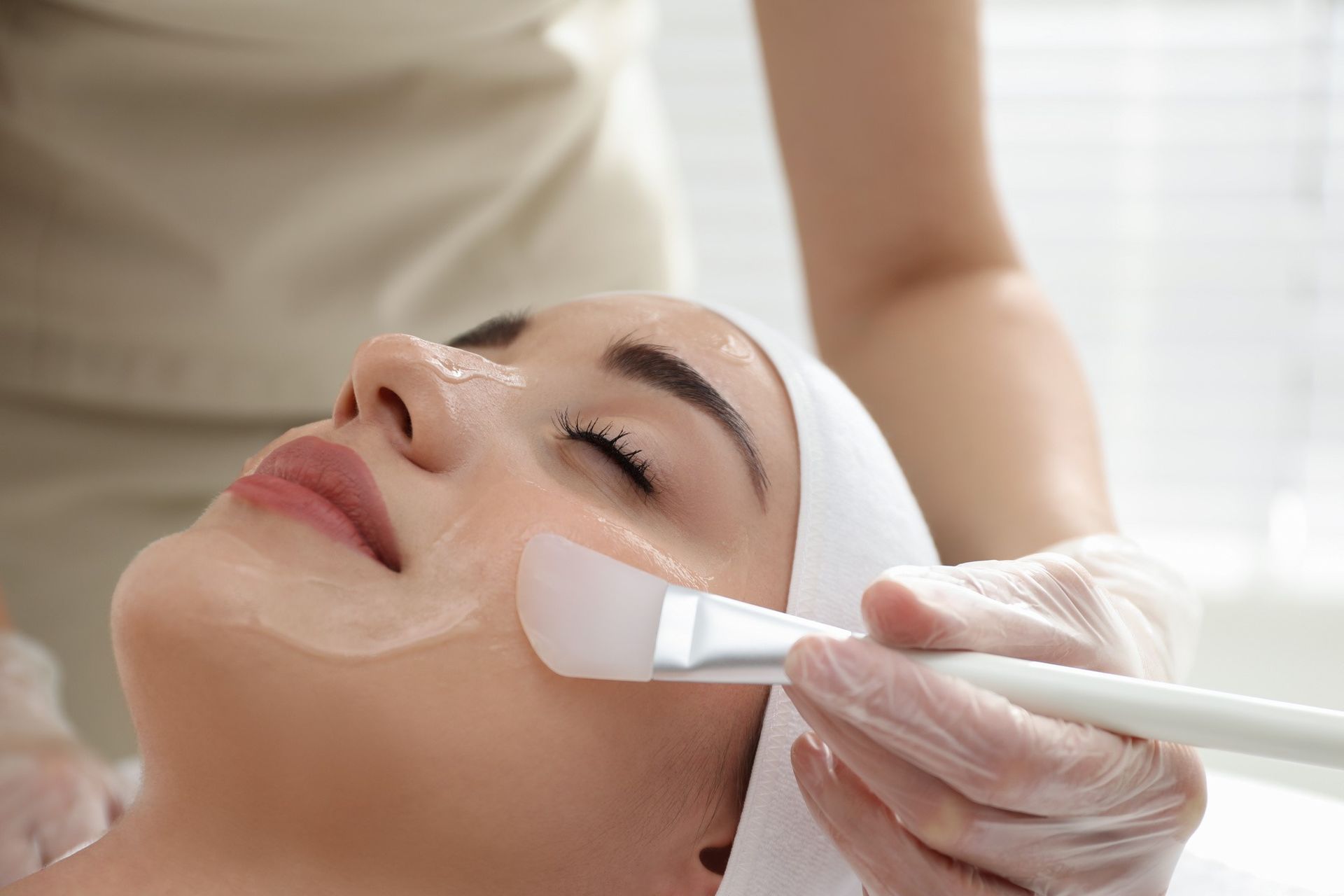Chemical peeling is a cosmetic treatment that uses a chemical solution to exfoliate and remove the damaged outer layers of skin. This process helps improve the texture, appearance, and overall health of the skin, revealing fresher, more youthful skin underneath. Chemical peels can address a variety of skin concerns, such as acne, sun damage, fine lines, and hyperpigmentation.
Benefits of Chemical Peeling:
● Improved Skin Texture: Exfoliates dead skin cells, revealing smoother, more even skin.
● Reduces Fine Lines & Wrinkles: Stimulates collagen production, improving the appearance of aging skin.
● Treats Acne & Acne Scarring: Helps clear pores, reduce breakouts, and fade acne scars.
● Brightens the Skin: Reduces dark spots, age spots, and uneven pigmentation for a more radiant complexion.
● Minimizes Sun Damage: Treats sun-induced discoloration and improves skin tone.

How Chemical Peeling Works:
- Preparation: A chemical solution is applied to the skin, tailored to your specific skin type and concerns.
- Exfoliation: The solution causes the outer layers of dead skin to exfoliate, stimulating skin renewal.
- Peeling Process: Depending on the depth of the peel (superficial, medium, or deep), the skin will begin to peel over the next few days, revealing fresh, new skin.
- Recovery: The skin heals over time, with visible improvements in texture, tone, and clarity.
Frequently Asked Questions (FAQ):
TYes, chemical peels can be safely performed on most skin types, but the type of peel (superficial, medium, or deep) should be tailored to your skin's unique needs. A consultation will help determine the best option for you.
Recovery time depends on the type of peel. Superficial peels require minimal downtime, while medium and deep peels may take several days to weeks for full recovery. During this time, you may experience redness, peeling, and sensitivity.
Yes, chemical peels are effective in treating acne. They help to clear pores, reduce oil production, and exfoliate the skin, which can reduce the occurrence of acne breakouts and fade acne scars over time.
For optimal results, superficial peels are typically done every 4-6 weeks, while medium peels may be recommended every 6-8 weeks. Deep peels are usually done as a one-time treatment, with long-lasting effects. Your dermatologist will guide you on the appropriate frequency based on your skin concerns.
Yes, it’s crucial to protect your skin from the sun after a chemical peel, as your skin will be more sensitive and prone to sunburn. Using a broad-spectrum sunscreen and wearing protective clothing is essential during the recovery period.